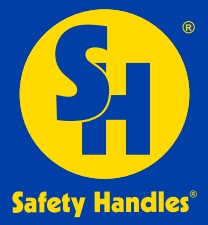Up to a 1/3* of accidents are roll cage related.
Cages are designed for moving objects, not for human handling. This is why companies using roll cages have found that up to a third of their accidents are roll cage-related (*HSE report below). Cages are used for transporting goods within warehouses, storage, distribution, hospitals, retail, airports, train stations and many others. They require users to remember their training when handled, offering minimal protection and comfort. This video just gives a taste of some of the many incidents related to roll cages...see the business case for my detail.


